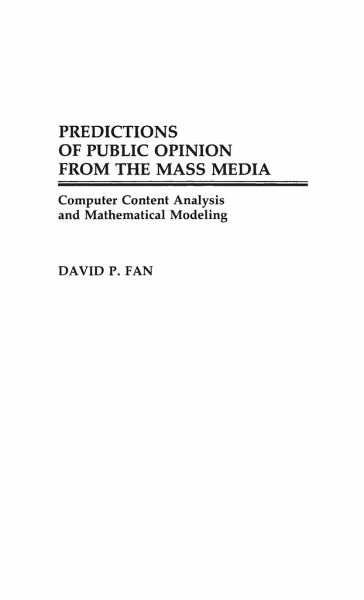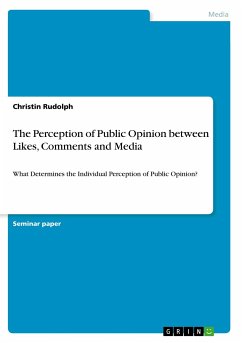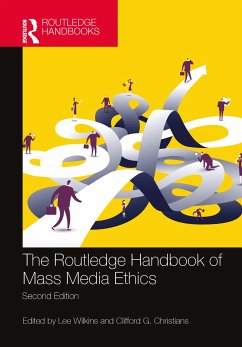
Predictions of Public Opinion from the Mass Media
Computer Content Analysis and Mathematical Modeling
Versandkostenfrei!
Versandfertig in 1-2 Wochen
87,99 €
inkl. MwSt.

PAYBACK Punkte
44 °P sammeln!
Those of us on the lookout for insights into social behavior must be impressed when a book strikes us as being powerful enough to shake firmly held beliefs in a single reading. Even as we explore the vagueness of social science, we unveil bias that prejudices how we think, what we teach. One bias in the social sciences derives from the influence of `cognitive dissonance' invoking thoughts of message reinforcement, not opinion change, and suggesting minimal effects of the press. Author David Fan goes far in dissuading those of us who have fallen under the minimalist spell. His clear examination...
Those of us on the lookout for insights into social behavior must be impressed when a book strikes us as being powerful enough to shake firmly held beliefs in a single reading. Even as we explore the vagueness of social science, we unveil bias that prejudices how we think, what we teach. One bias in the social sciences derives from the influence of `cognitive dissonance' invoking thoughts of message reinforcement, not opinion change, and suggesting minimal effects of the press. Author David Fan goes far in dissuading those of us who have fallen under the minimalist spell. His clear examination of the power of the American press on public opinion provides compelling evidence for the profound impact the press has on our thinking. Fan, a cellular biologist, parades an impressive array of data to support his contention that opinion can be measured by the application of his mathematical model to the content of national news reports. His findings confirm a clear connection between the content of national news and the results of national opinion polls. Public Relations Review This incisive examination of the power of information in society uses a new mathematical model, ideodynamics, to describe social responses to information and suggests that public opinion can be swayed in a predictable fashion by messages acting on the populace. In addition to mathematical modeling, this book also introduces a new method for computer content analysis able to score text for its support of different viewpoints. The method is highly flexible and adaptable, yielding great precision for any topic in any language. Although previous work has indicated that the press is able to set the agenda with regard to public opinion, this book is unique in demonstating that the press also is able to mold opinion within that agenda. Fan begins with a presentation of ideodynamics followed by an examination of the ability of the mathematical model to incorporate previous theories. He then considers data applications and discusses the conclusions to be drawn from the work. The empirical testing uses the ideodynamic equations and scores from the text analysis to predict time trends of public opinion which correspond strikingly well with actual poll measurements.














